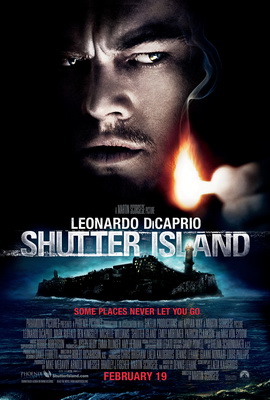TV expands big-screen stories

via wikipedia.org
September 10, 2014
In terms of budget and style, television is coming closer to film than ever before. “Game of Thrones” has drawn comparisons to “Lord of the Rings” and “Mad Men” has been praised for its cinematic style.
Now, films are even being adapted into television shows. A few are airing now: FX’s “Fargo” and NBC’s “Hannibal” are currently praised as two of the best shows currently on television, while NBC’s “About a Boy” has already been renewed for a second season. There are only more to come. Upcoming small-screen versions of “The Truman Show,” “Ghost” and “Shutter Island” (the latter will be retitled “Ashecliffe”) are currently in production.
This small wave of TV versions of film may seem new, but buried in the annals of TV history are two TV series prequels based on “Casablanca” and NBC’s short-lived sitcom “Ferris Bueller,” as well as an earlier attempt to bring “Fargo” to the small screen with Edie Falco playing Frances McDormand’s Oscar-winning role. The only difference is that today more TV writers want to produce long-running quality entertainment rather than movie knock-offs.
Writers and networks are interested in doing so because there is more freedom and demand to produce these kinds of shows — audiences want more from their favorite movies.
The upcoming Nickelodeon remake of Richard Linklater’s “School of Rock” may not have the visual flair of Martin Scorsese’s “Shutter Island” or Peter Weir’s “The Truman Show.” “School of Rock” was hardly memorable for its visual flair. Instead, it earned its fame from Jack Black’s portrayal of a wacky wannabe rock star and his interactions with the ensemble of oddball students under his wing. Seeing these same funny characters every week could offer some great entertainment if done right.
A successful example is NBC’s “Friday Night Lights,” based on the movie of the same name. The show portrayed football fandom in a small Texas town with strong writing and memorable characters, not breathtaking visuals. Television allows showrunners more than two hours to flesh out characters — something that many directors will never have when they make films.
Sometimes these television adaptations of movies can be used to further the world of the original source as well. HBO’s “Ashecliffe” will reportedly reveal the origins of the spooky mental asylum from Scorsese’s film and Dennis Lehane’s novel. “Fargo” builds upon the Coen Brothers’ film by using its peculiar setting as a means to explore a new assortment of nutty inhabitants within the titular area.
If current showrunners wisely choose the movies to be adapted into series, this could become one of the better trends in recent memory. If “Hannibal” and “Fargo” are any proof, the line between the small screen and the big screen is already being blurred and, with upcoming shows like “Ashecliffe,” this process of making television more like film will only continue.
A version of this article appeared in the Wednesday, Sept. 10 print edition. Email Zack Grullon at [email protected].























































































































































